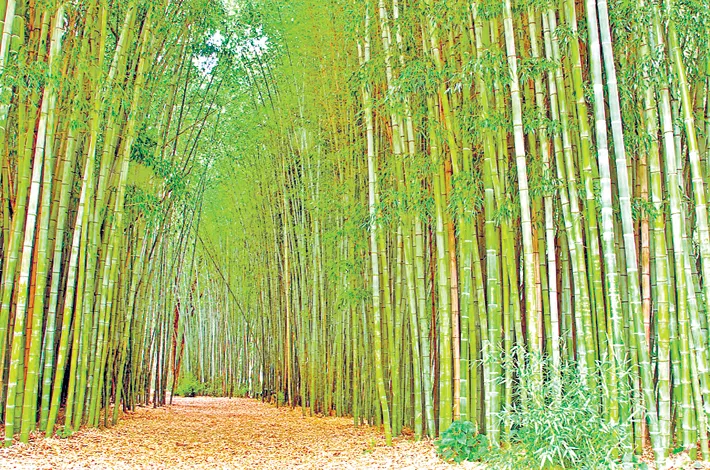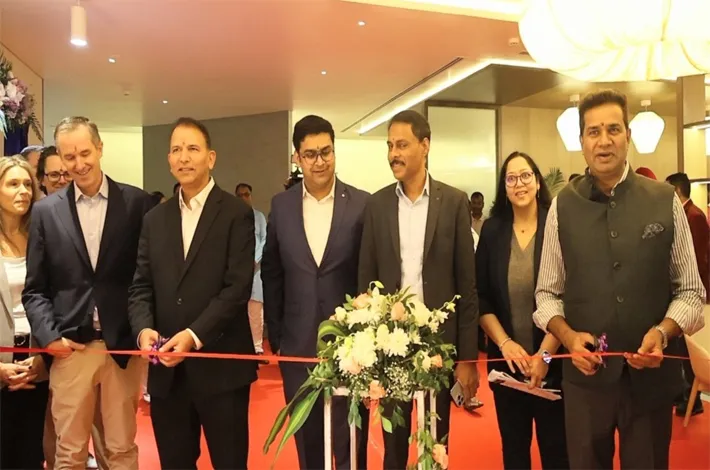Retired banker spurs farmers towards bamboo cultivation
18-07-2025 12:00:00 AM

Inspires over 300 acres of bamboo plantations across Andhra and Telangana
Bombastic facts
■ Zero-water bamboo cultivation thrives on barren land near Guntur
■ Bamboo roof can take 7,000 tonnes of weight
■ Bamboo houses are a viable alternative to concrete houses
■ Global models—from Chinese trains to Maldivian cottages—showcase bamboo’s versatility
■ Bamboo is the fastest growing grass
EKALAVYA MALLEPALLI | Hyderabad
In the arid stretches of Andhra Pradesh, a quiet yet powerful transformation is underway, led by a retired banker who has turned to nature for his second innings. V. Venkateshwarlu, a former Deputy General Manager at Indian Bank and an alumnus of the 1980 batch of Bapatla Agricultural College, is leading this movement by converting infertile lands into thriving bamboo groves.
Speaking to Metro India, Venkateshwarlu said, “Bamboo is not just a crop but a pathway to a greener, more secure future for Indian farmers.” Near Sathenapalli in Guntur district, Venkateshwarlu began his journey by planting Beema Bamboo on a barren, uncultivated plot. This fast-growing, thornless bamboo variety is known for its exceptional durability and low maintenance. Remarkably, in just four years, the bamboo flourished—without a drop of irrigation or the use of chemical fertilizers and pesticides. Surviving solely on rainwater and native soil nutrients, the bamboo grove stood tall as proof of nature’s quiet power.
Impressed by its success, he expanded into Tulda bamboo on 6.5 acres—another variety prized for furniture and handicrafts. His thriving model caught the attention of local farmers, inspiring over 300 acres of bamboo plantations across Andhra Pradesh and Telangana.
Venkateshwarlu believes bamboo farming is ideal for farmers struggling with poor soils. Unlike traditional crops, bamboo requires little intervention—just a basic soil test to start. The financial prospects are equally encouraging. Even without any processing, an acre of bamboo can yield an income of up to Rs 50,000 annually. With value addition—such as turning bamboo into charcoal, pulp, furniture, or handicrafts—the returns can multiply rapidly, with yields reaching 20–25 tonnes per acre.
Beema Bamboo is also in high demand for industrial use due to its soft texture, making it suitable for biofuel, construction, and more. Its fallen leaves enrich the soil naturally and suppress weeds, eliminating the need for fertilizers or labor-intensive upkeep.
A key policy shift came in 2017 when the Indian government reclassified bamboo as grass, easing restrictions on its cultivation and harvest. This has opened new opportunities for agro-entrepreneurs. Drawing from China’s success in bamboo-based textiles and construction, Venkateshwarlu envisions a similar boom in India.








